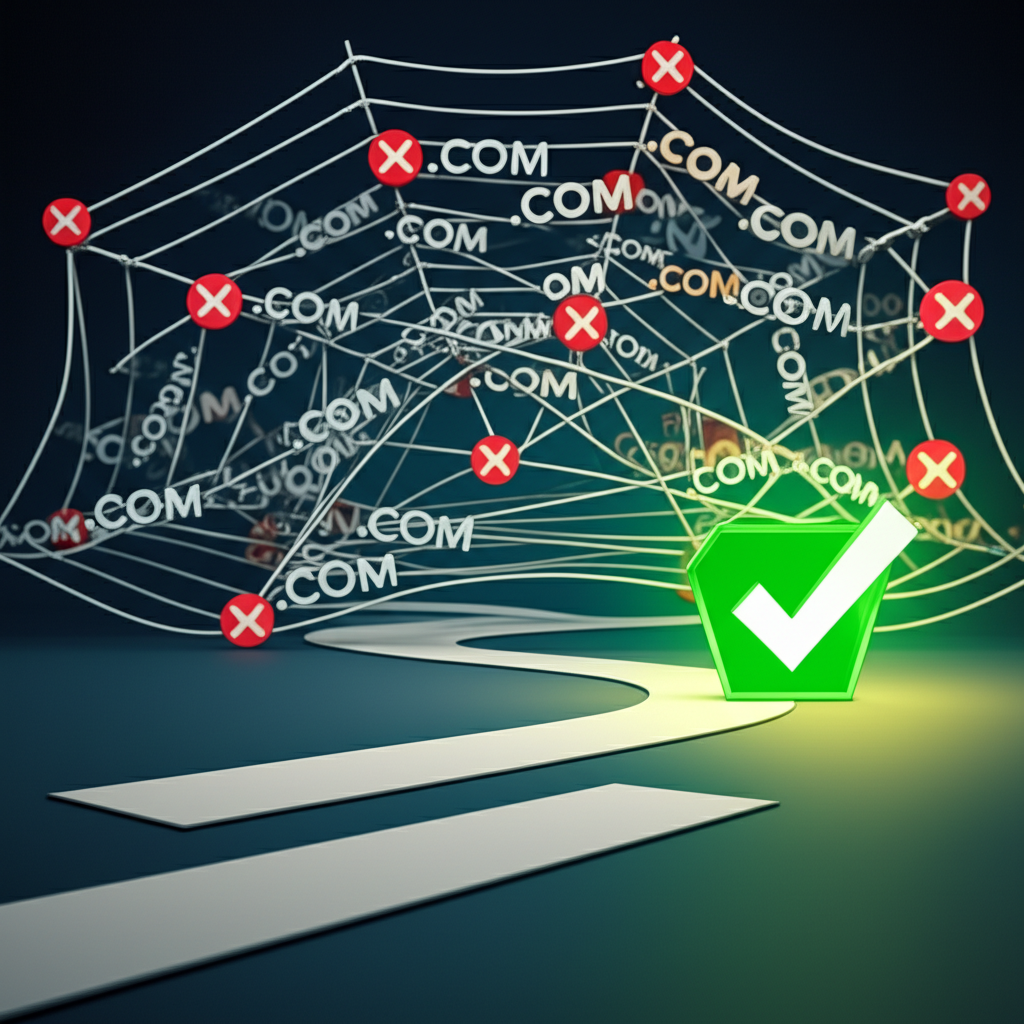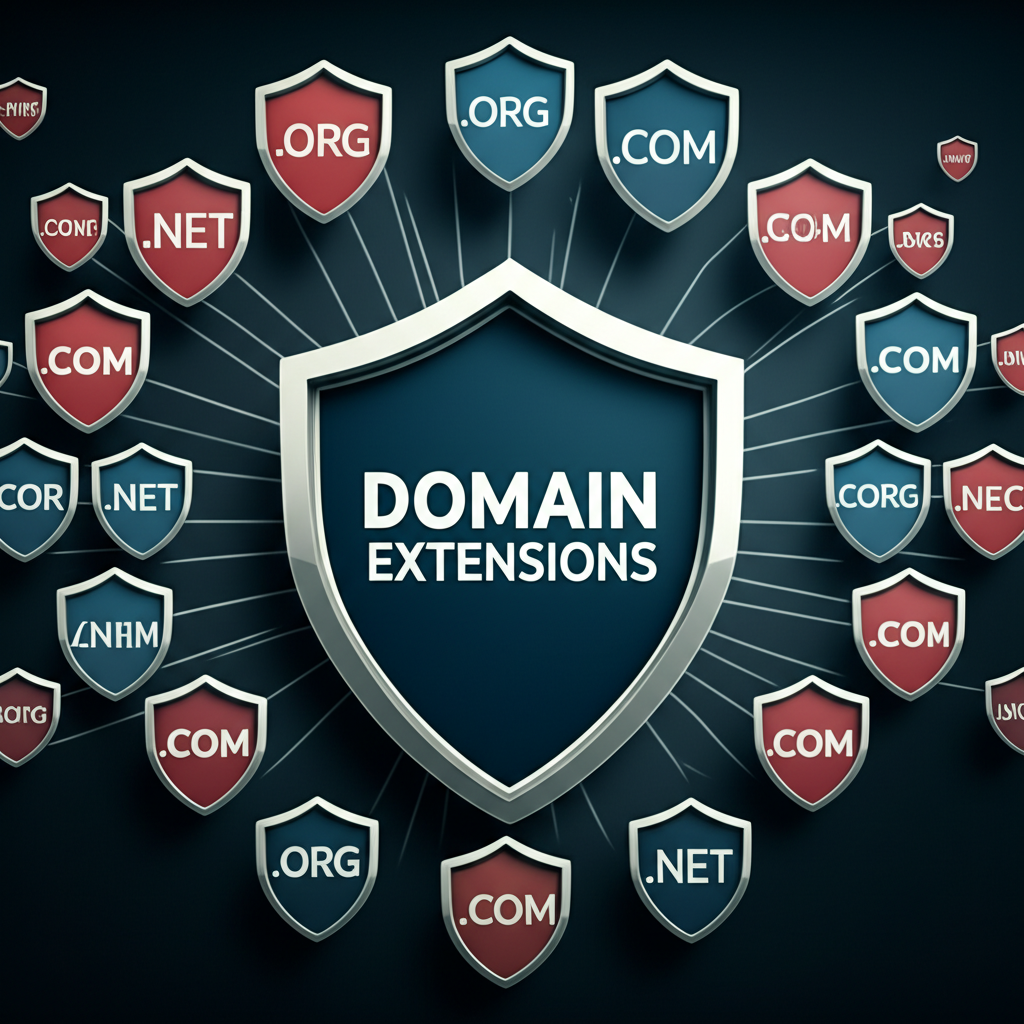- Why Domain Extensions Matter for Brand Protection
- Domain Extensions: A Shield Against Cybersquatting
- Protecting Your Brand Across Multiple Domain Extensions
- Leveraging Domain Extensions for Targeted Marketing
- Domain Extensions: A Long-Term Investment
- Best Practices for Managing Your Domain Portfolio
- Beyond the Basics: Defensive Registration Strategies
Domain Extensions: Essential Brand Protection (Must-Have)
Domain extensions are a critical aspect of brand protection in today’s digital landscape. Selecting the right extension and securing variations is no longer just about having a website address; it’s a crucial defensive strategy against cybersquatting, brand dilution, and potential revenue loss. By understanding the importance of various domain extensions and implementing a proactive approach to acquiring them, businesses can safeguard their brand identity and build a stronger online presence.
Why Domain Extensions Matter for Brand Protection

Choosing the right domain extension is the first step. While .com remains the most popular and recognized extension globally, other extensions like .net, .org, and country-specific extensions (like .co.uk or .ca) offer specific advantages and can be crucial for targeting specific audiences. For example, a non-profit organization might choose .org, while a business operating solely within the UK would likely benefit from securing a .co.uk extension.
Beyond simply choosing the right primary extension for your website, strategically registering other extensions is crucial for comprehensive brand protection. This helps prevent competitors or malicious actors from registering similar domain names and potentially diverting traffic or damaging your brand reputation.
Domain Extensions: A Shield Against Cybersquatting
Cybersquatting, the practice of registering domain names similar to established brand names with the intent to profit from them, is a significant threat. By registering variations of your brand name across multiple domain extensions, you erect a vital barrier against cybersquatting attempts. This preemptive measure prevents others from capitalizing on your brand recognition and potentially misleading consumers. Imagine a scenario where a competitor registers yourbrand.net and uses it to host a website with inferior products or services. This could severely damage your brand reputation and lead to customer confusion and lost revenue.
Protecting Your Brand Across Multiple Domain Extensions
Beyond the most common extensions, consider registering your brand name with other relevant extensions. This could include newer top-level domains (TLDs) like .tech, .io, or industry-specific extensions like .legal or .healthcare. While these extensions may not be your primary website address, owning them prevents others from using them against you. This comprehensive approach is crucial for businesses operating in highly competitive markets or those with significant brand recognition where the risk of cybersquatting is higher.
Leveraging Domain Extensions for Targeted Marketing
Domain extensions can also play a crucial role in targeted marketing campaigns. For instance, using a country-specific extension can improve your search engine ranking within that region and make it clear to customers that your business operates locally. Similarly, using specific TLDs like .shop or .events can create memorable and relevant web addresses for dedicated online stores or event promotion pages. This strategic use of domain extensions can enhance your brand visibility and streamline customer navigation to specific services or products.
Domain Extensions: A Long-Term Investment
Acquiring and managing multiple domain extensions should be viewed as a long-term investment in brand protection. The cost of registering these extensions is minimal compared to the potential financial and reputational damage that can arise from cybersquatting or brand infringement. This proactive measure provides an essential layer of defense against online threats and reinforces your brand’s online presence.
Best Practices for Managing Your Domain Portfolio
Effectively managing your domain portfolio is just as crucial as acquiring the right extensions. Consider using a domain management service to keep track of renewal dates, DNS settings, and other critical information. Regularly auditing your domain portfolio ensures that all registered domains are correctly configured and pointing to the appropriate resources. This prevents accidental expirations and safeguards your brand from potential vulnerabilities.
Beyond the Basics: Defensive Registration Strategies
For brands with substantial online presence, implementing more advanced defensive registration strategies can be beneficial. This might include registering common misspellings of your brand name or variations relevant to specific product lines. This further reduces the risk of typosquatting, where malicious actors register domain names with common misspellings to capitalize on user errors. While this strategy might involve registering a larger number of domains, it offers an additional layer of protection and strengthens your overall brand defense.
In conclusion, proactively managing domain extensions is no longer optional but an essential component of a comprehensive brand protection strategy. By securing relevant variations and implementing proactive management practices, businesses can mitigate the risks of cybersquatting, strengthen brand recognition, and build a more resilient online presence. The investment in acquiring and managing multiple domain extensions is a small price to pay for the long-term security and integrity of your brand in the digital world.















Leave a Reply